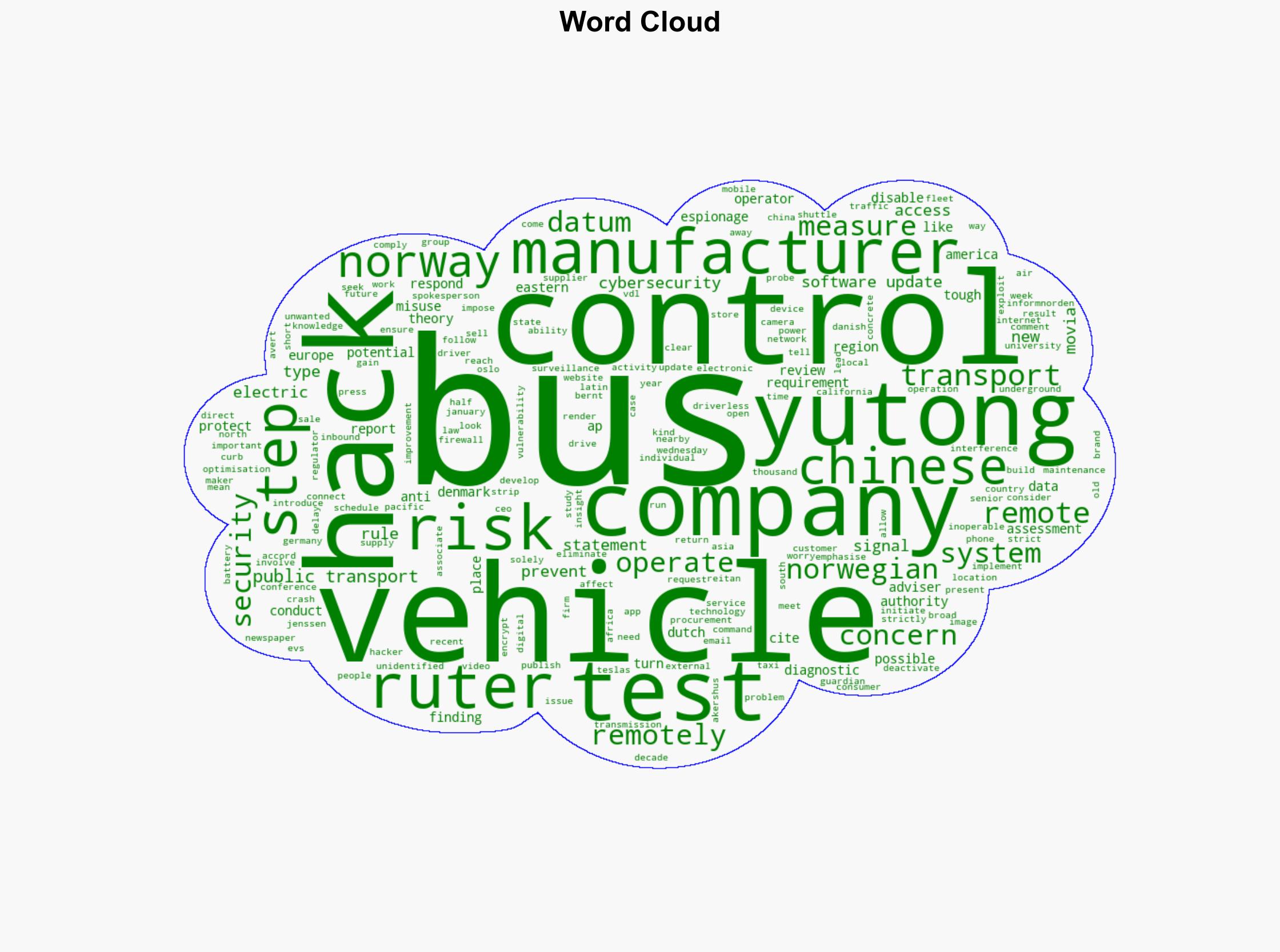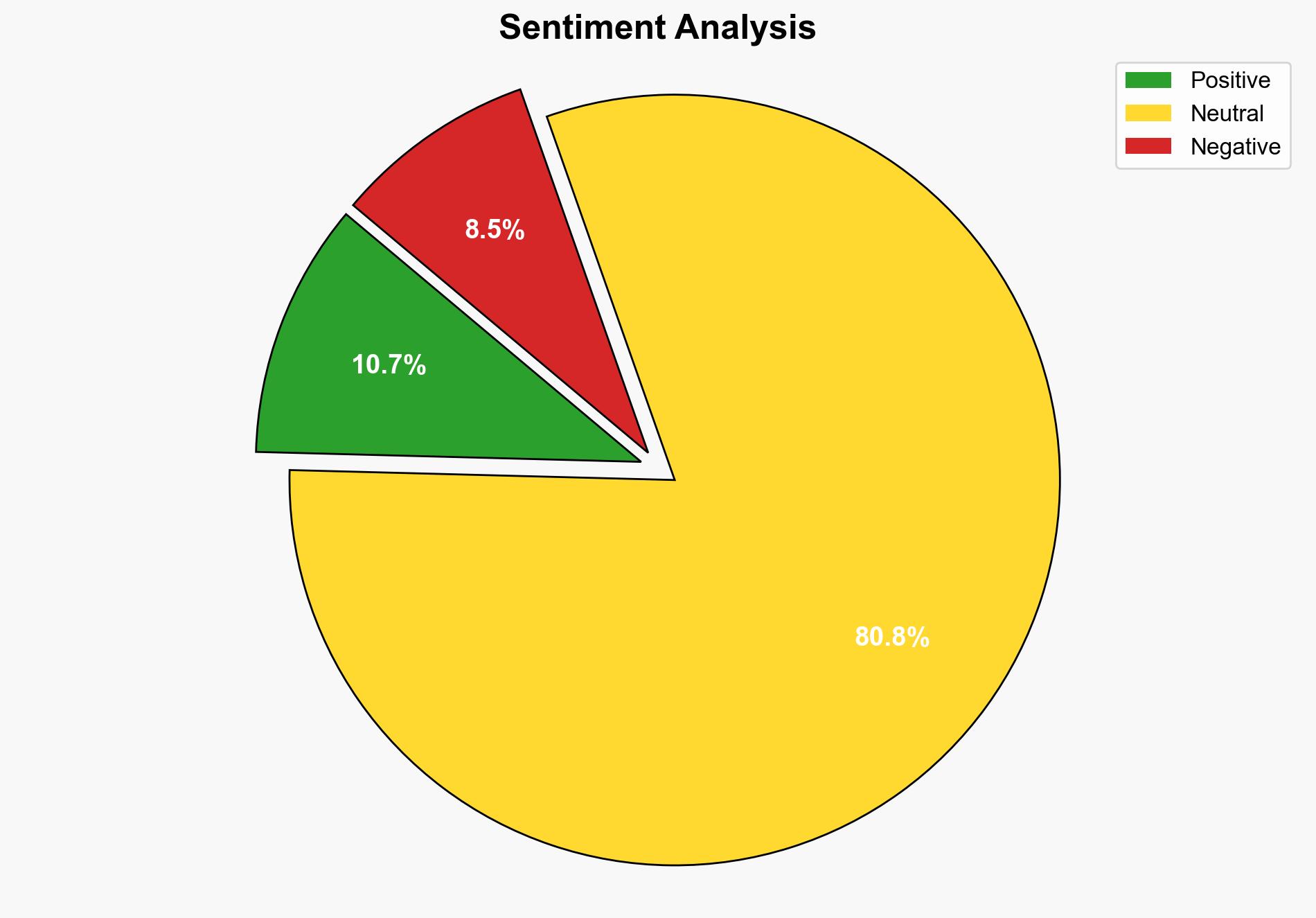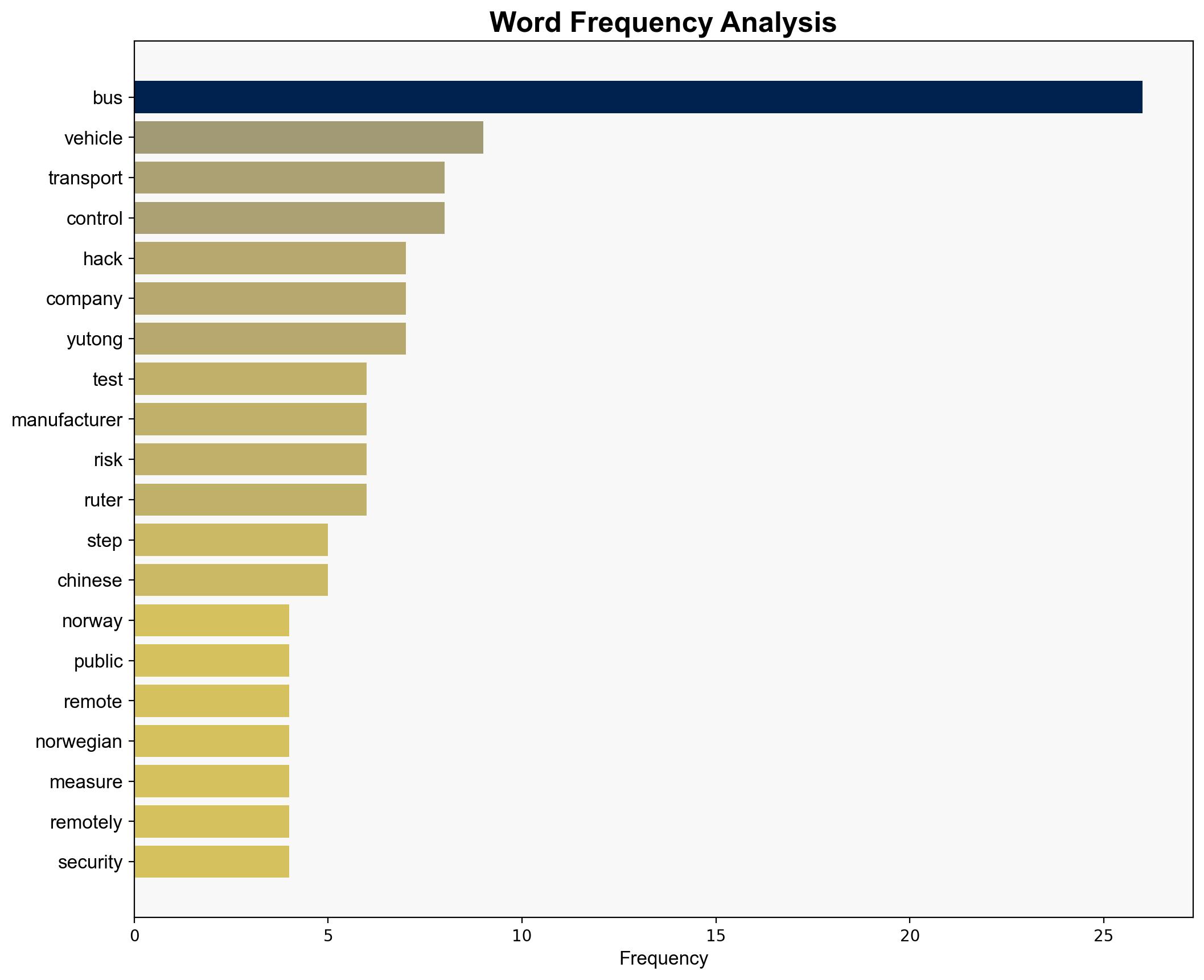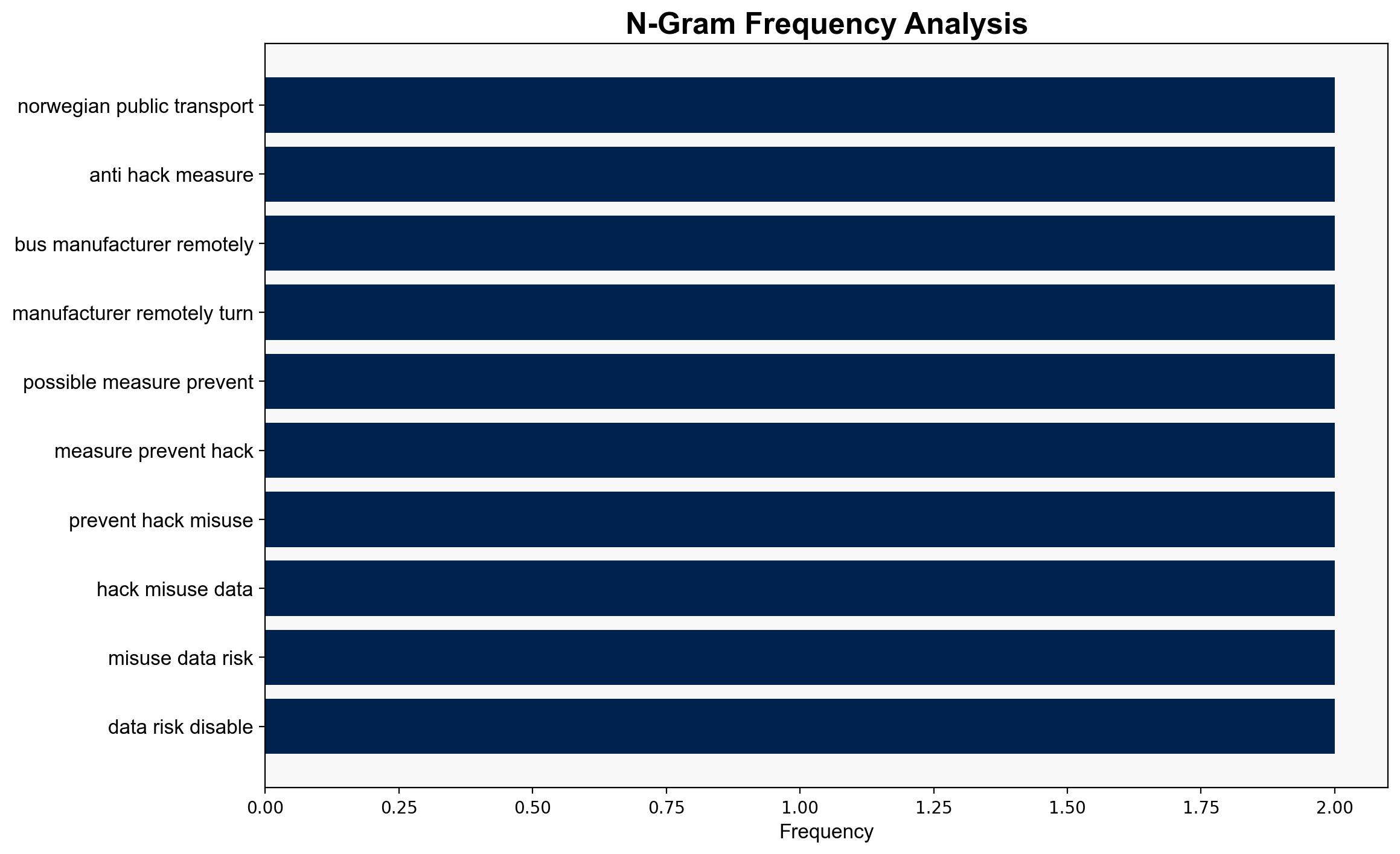Norway steps up measures against potential remote control of buses – ABC News (AU)
Published on: 2025-11-06
Intelligence Report: Norway steps up measures against potential remote control of buses – ABC News (AU)
1. BLUF (Bottom Line Up Front)
Norway is enhancing cybersecurity measures to prevent potential remote control and data misuse of electric buses, particularly those manufactured by Yutong. The most supported hypothesis is that these measures are a proactive response to identified vulnerabilities in foreign-manufactured vehicles, with a medium to high confidence level. It is recommended that Norway continues to strengthen cybersecurity protocols and collaborates with international partners to share intelligence and best practices.
2. Competing Hypotheses
1. **Proactive Security Enhancement Hypothesis**: Norway’s actions are a proactive measure to address identified cybersecurity vulnerabilities in electric buses, particularly those from foreign manufacturers like Yutong, to prevent potential espionage or sabotage.
2. **Reactive Response to External Pressure Hypothesis**: Norway is reacting to external pressures and geopolitical tensions, particularly concerning Chinese technology, leading to increased scrutiny and regulatory actions against foreign-manufactured buses.
Using ACH 2.0, the first hypothesis is better supported due to the detailed risk assessments and specific actions taken by Norwegian transport operators, indicating a structured and informed approach rather than a reactionary one.
3. Key Assumptions and Red Flags
– **Assumptions**: It is assumed that the cybersecurity vulnerabilities are significant enough to warrant the measures being taken. There is also an assumption that foreign manufacturers have the capability and intent to exploit these vulnerabilities.
– **Red Flags**: The lack of direct evidence of exploitation by Yutong or other manufacturers raises questions about the immediacy of the threat. Additionally, the reliance on statements from manufacturers without independent verification could indicate potential bias or misinformation.
4. Implications and Strategic Risks
The strategic risks include potential economic impacts on foreign trade relations, particularly with China, and the broader implications for international cybersecurity standards in public transport. There is also a risk of escalation in geopolitical tensions if these measures are perceived as targeting specific countries. The psychological impact on public trust in electric vehicles and public transport systems could also be significant if vulnerabilities are not adequately addressed.
5. Recommendations and Outlook
- Norway should continue to enhance cybersecurity measures and conduct regular audits of public transport systems.
- Engage in international collaboration to develop and share best practices for cybersecurity in public transport.
- Scenario Projections:
- **Best Case**: Successful mitigation of vulnerabilities leads to increased public trust and strengthened international cybersecurity cooperation.
- **Worst Case**: Failure to address vulnerabilities results in a significant cyber incident, damaging public trust and international relations.
- **Most Likely**: Gradual improvement in cybersecurity measures with ongoing adjustments based on emerging threats and technological advancements.
6. Key Individuals and Entities
– Bernt Reitan Jenssen (CEO of Ruter)
– Yutong Group (Bus Manufacturer)
– Movia (Danish Transport Company)
7. Thematic Tags
national security threats, cybersecurity, counter-terrorism, regional focus





